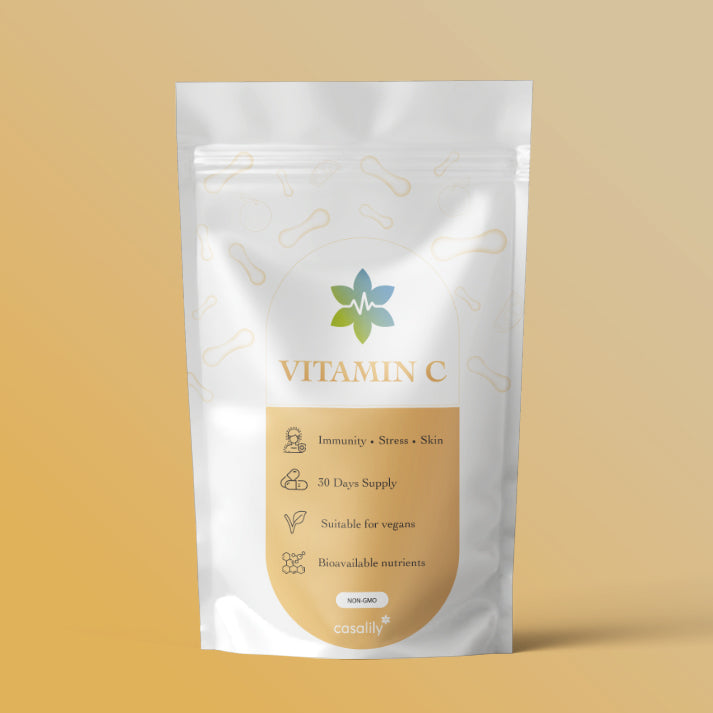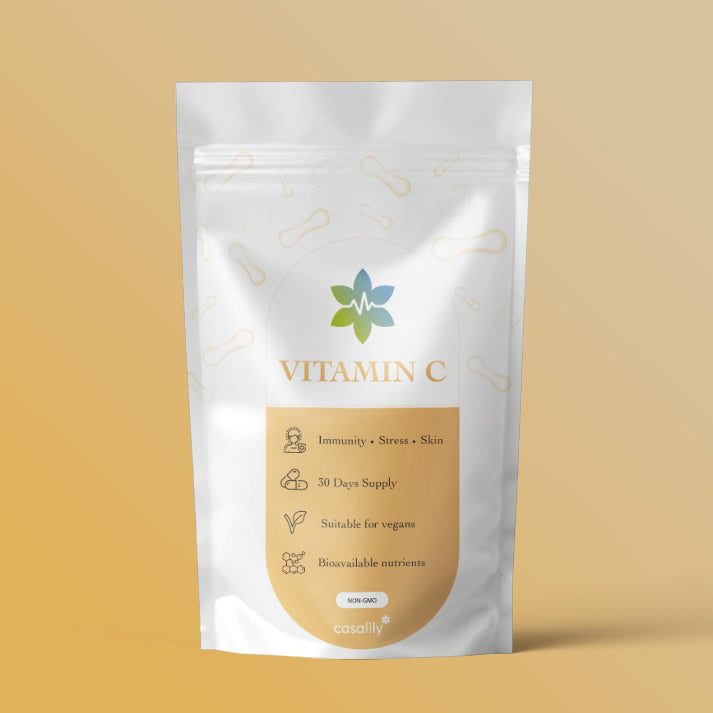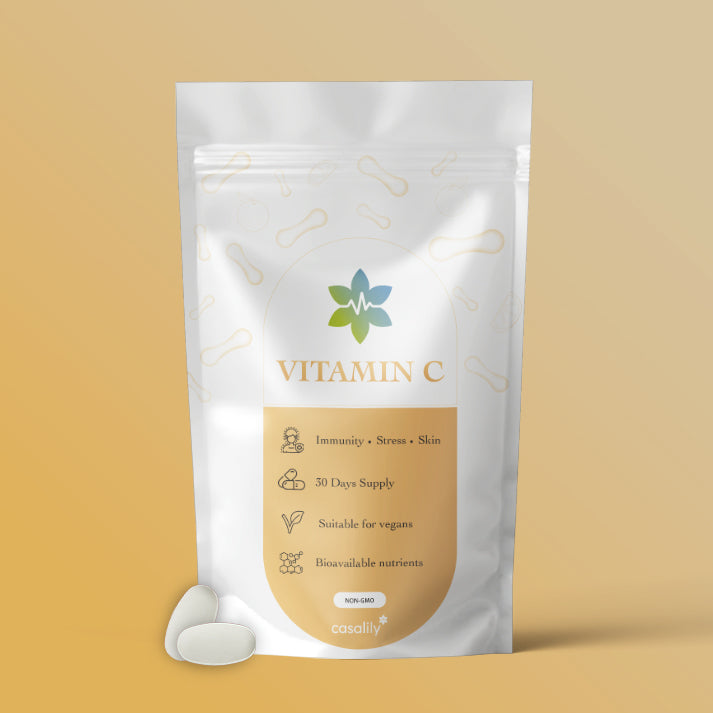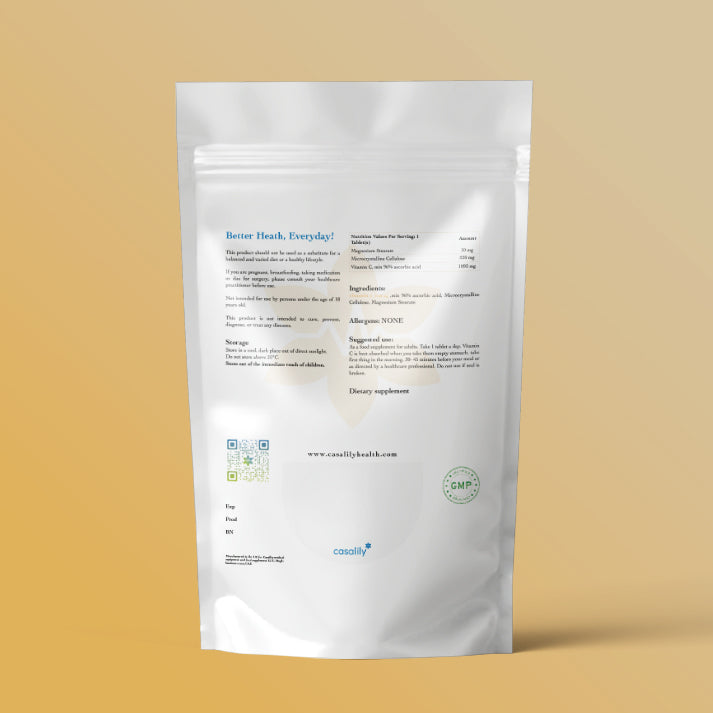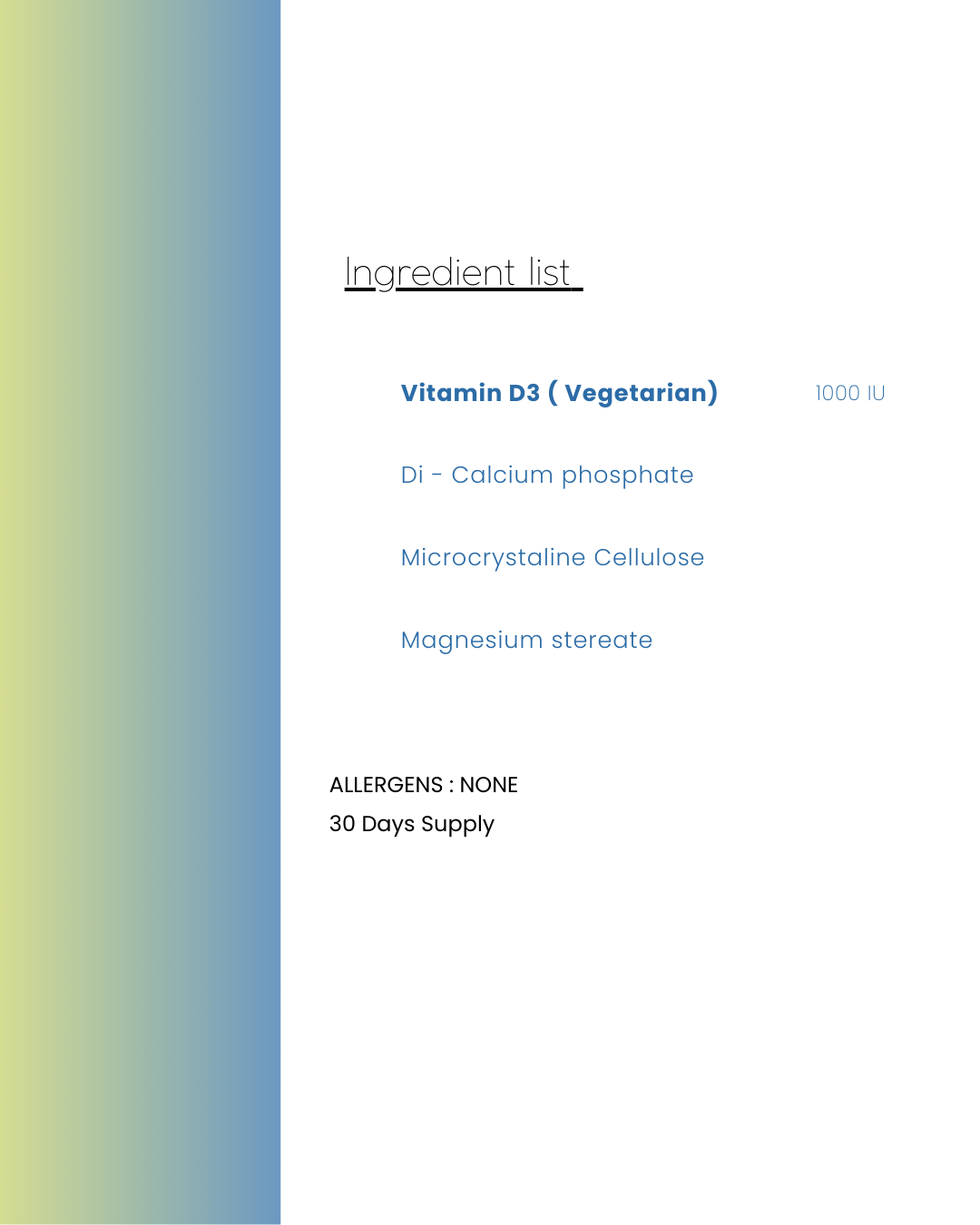The Benefits of Vitamin C: A Powerhouse Nutrient for Your Health
Share
Vitamin C, also known as ascorbic acid, is one of the most essential nutrients for overall health. This water-soluble vitamin is celebrated for its role in boosting immunity, improving skin health, and supporting various bodily functions. While many people associate vitamin C with fighting colds, its benefits extend far beyond immune health.
Why Take Vitamin C?
Here are key reasons to include vitamin C in your daily routine:
- Essential Nutrient: The body cannot produce vitamin C, so it must be obtained through diet or supplements.
- Immune Support: Enhances immune function by boosting white blood cell production and reducing inflammation.
- Collagen Synthesis: Vital for healthy skin, joints, and connective tissues by promoting collagen production.
- Antioxidant Power: Fights oxidative stress and protects cells from damage caused by free radicals.
- Prevention of Deficiencies: Helps prevent conditions like scurvy and improves wound healing and recovery.
- Overall Health: Supports energy levels, youthful skin, and your body’s natural defenses against aging and illness.
Incorporating vitamin C into your routine is an easy and impactful way to maintain optimal health.
Let’s dive into the many ways this powerful nutrient contributes to your well-being.
1. Strengthens Your Immune System
One of the most well-known benefits of vitamin C is its ability to boost the immune system. It enhances the production of white blood cells, which help fight off infections. Vitamin C also strengthens the skin's barrier function, making it harder for pathogens to enter the body. By neutralizing free radicals, it reduces inflammation and supports faster recovery from illnesses.
2. Promotes Healthy Skin
Vitamin C plays a crucial role in maintaining skin health. It stimulates collagen production, a protein that keeps the skin firm and elastic. This can help reduce the appearance of wrinkles and fine lines. Moreover, its antioxidant properties protect the skin from damage caused by UV rays and pollution, giving your skin a radiant and youthful glow.
3. Supports Cardiovascular Health
Heart disease remains a leading cause of death worldwide, and vitamin C can play a preventive role. It helps lower blood pressure, improve blood vessel function, and reduce harmful LDL cholesterol levels. These effects collectively contribute to a healthier cardiovascular system, reducing the risk of heart disease and stroke.
4. Acts as a Powerful Antioxidant
Vitamin C is a potent antioxidant that combats oxidative stress in the body. Oxidative stress occurs when there is an imbalance between free radicals and antioxidants, leading to cell damage. This damage is linked to chronic diseases like cancer, arthritis, and neurodegenerative conditions. By neutralizing free radicals, vitamin C reduces the risk of these diseases and promotes overall cellular health.
5. Boosts Iron Absorption
For those struggling with iron deficiency or anemia, vitamin C can be a game-changer. It enhances the absorption of non-heme iron, the type of iron found in plant-based foods. Pairing vitamin C-rich foods with iron sources, such as spinach or lentils, can significantly increase your body's ability to absorb and use this vital mineral.
6. Improves Eye Health
Vitamin C plays a vital role in maintaining healthy vision. It reduces the risk of cataracts and slows the progression of age-related macular degeneration (AMD), two common eye disorders. Its antioxidant properties protect the eyes from damage caused by UV light and free radicals.
7. Supports Brain Health
Emerging research suggests that vitamin C may have protective effects on the brain. It helps combat oxidative stress and inflammation, two factors that contribute to neurodegenerative diseases like Alzheimer's and Parkinson's. Additionally, vitamin C is involved in neurotransmitter synthesis, which is crucial for mood regulation and cognitive function.
How to Incorporate Vitamin C into Your Diet
The good news is that vitamin C is found in a wide variety of delicious foods. Here are some of the top sources:
- Citrus fruits: oranges, lemons, grapefruits
- Berries: strawberries, blueberries, blackberries
- Vegetables: bell peppers, broccoli, Brussels sprouts
- Tropical fruits: papaya, kiwi, pineapple
For those who struggle to get enough vitamin C through food, supplements are also an option. However, it’s always best to consult with a healthcare professional before starting any new supplement regimen.
Why Choose Our Vitamin C?
Our Vitamin C supplement delivers a powerful 1,000 mg dose per serving, ideal for boosting immunity, supporting skin health, and combating oxidative stress. This dosage aligns with common recommendations for supplementation, providing enhanced immune support and antioxidant protection. At this level, it's effective for individuals managing stress, engaging in intense physical activity, or looking to maintain overall health. Safe and well-tolerated, 1,000 mg is a practical choice for those seeking a reliable way to meet their daily Vitamin C needs and support optimal well-being.
